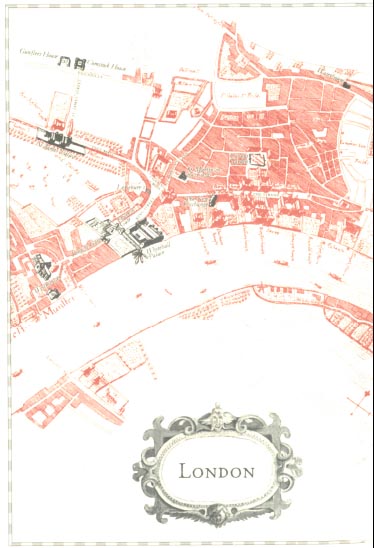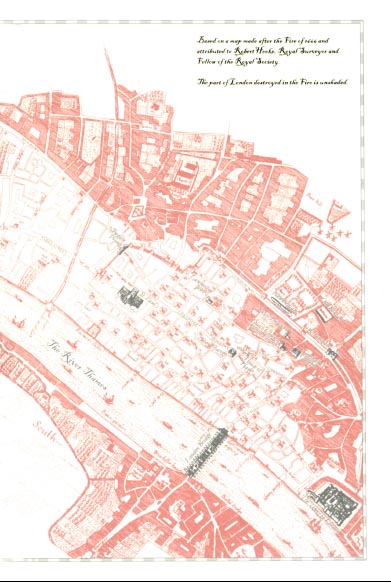Quicksilver (134 page)
Authors: Neal Stephenson

*
There are thirty-two points on the compass rose.
*
Jack could not read but could infer as much from the types of letters used.
*
The reason the pikemen didn’t protectively surround the musketeers, instead of being surrounded by them, was that even if the musketeers aimed between them, or over their heads, they would get mowed down by errant balls; because if, as frequently happened, a musket ball was a bit too small for its barrel, it would take to bouncing from one side of the barrel to the other as it was propelled out, and might emerge at a sharp, startling sideways angle.
*
Not that Bob was a Puritan—far from it—but he was known to talk that way, to demonstrate his superiority over Jack.
*
It turned out that if you did the mathematicks on a typical war, the cost of powder was more important than just about anything else—Herr Geidel insisted that the gunpowder in the arsenal of Venice, for example, was worth more than the annual revenue of the entire city. This explained a lot of oddness Jack had witnessed in various campaigns and forced him to reconsider (briefly) his opinion that all officers were mad.
*
Which Jack could tell by interpreting the coats of arms carved on the gateposts and embroidered on the flags.
*
As the trading-houses were called, because important men called factors inhabited and ran them.
*
E.g., “Hey, Doc, how many goats were shaved to make that wig?”
*
Just guessing, here.
*
Which they knew because it bore the trademark of none other than Herr Geidel.
*
Faulbaum,
the Germans said, meaning “lazy and rotten tree.” They were alders.
*
The Doctor: “Actually, it is a helix, not a spiral.”
*
Various pieces of evidence suggested to Jack that he’d been sleeping.
*
It being one of the many peculiar features of Jack’s upbringing that (1) he had a perpetual sparring partner (Bob)—perpetual in the sense that they slept in the same bed at night and, as brothers do, fought all day—against whom he was evenly matched, and (2) at the age when every boy engages in mock sword-fight, he and Bob happened to suddenly find themselves living in a military barracks, where their duels served as free entertainment for large numbers of men who actually
did
know a few things about fighting with swords, and who found the entertainment lacking if it was not well played, both in a
technical
sense (blows had to be delivered and parried in some way that was realistic to their discerning eyes) and in a
dramatic
sense (extra points scored, and extra food thrown in their direction, for enhancements such as hanging by the knees from joists and fighting upside-down, swinging like apes from ropes, etc.). The result being that from a young age the Shaftoe boys had sword-fighting abilities considerably above their station in life (most people like them never came into contact with a sword at all, unless it was with the edge of the blade in the last instant of their life), but limited to the type of sword called the spadroon—a cut-and-thrust weapon—which, they’d been warned, might not be very effective against Gentlemen armed with long slender poky rapiers and trained to insert them deftly through narrow gaps in one’s defenses. The Janissary-blade was a rough Mahometan equivalent of a spadroon, therefore, ideally matched to Jack’s style, or Bob’s for that matter. He waved it around dramatically.
*
And of her husband, Duke Ernst August.
*
Louis XIV of France.
*
William of Orange.
*
William of Orange.
*
King Louis XIV of France—not really Monmouth’s uncle, but the brother of the widower of the sister of his illegitimate father, as well as the son of the brother of his grandmother, and many other connexions besides.
*
A quartering of elements old (fleurs-de-lis, denoting their ancient connections to the royal family) and new (Negro-heads in iron neck-collars).
*
It dropped from 572 to 250 when word of Monmouth’s rebellion spread.
*
E.g., Nassau, Katsenellenbogen, Dietz, Vianden, Meurs.
*
The flying jib downhaul.
*
The Duke of Northumbria was the bastard son of Charles II by his mistress Barbara Palmer,
nee
Villiers, Duchess of Castlemaine.
†
The Duke of Richmond was the bastard son of Charles II by his mistress Louise de Kéroualle, Duchess of Portsmouth.
‡
The Duke of St. Alban’s was the bastard son of Charles II by his mistress Nell Gwyn, the nubile comedienne and apple-woman.
*
The name of Hexagram 3 of the
I Ching,
or 010001, that being the encryption key for the subliminal message embedded in the script of this letter.
*
Darkening of the Light: Hexagram 36 of the
I Ching,
or 000101.
*
Increase: Hexagram 42 of the
I Ching,
or 110001.
*
Family: Hexagram 37 of the
I Ching
, or 110101.
* Break-through: Hexagram 43 of the
Break-through: Hexagram 43 of the
I Ching,
or 0 1 1 1 1 1.
*
But sometimes they formally held these positions and sometimes they didn’t.


